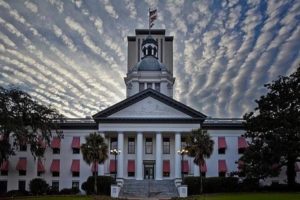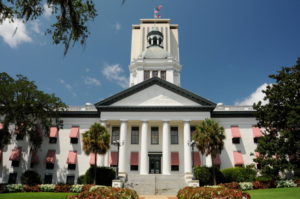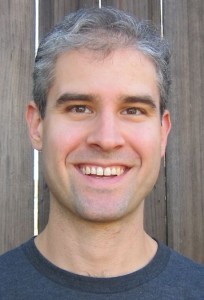If you ask Florida Sen. Jeff Brandes (R-St. Petersburg) what he thinks the education world will look like in the year 2040, he’ll tell you it will be going back to the past.
“I see us moving back to the one-room schoolhouse where we have students of different capabilities working with each other to help everyone rise,” Brandes says.
The Pinellas County lawmaker pushes innovative education policies every year in the Florida Legislature, but new leadership more focused on education choice appear to be giving his ideas more traction.
His signature education bill this session, SB 226, would expand a mastery-based education pilot program from the three Florida counties currently testing the concept to any district in the state that wishes to participate. The bill wasn’t heard in committee last session but is on track to pass this year with wide bipartisan support. A similar bill is currently awaiting passage in the House.
Brandes firmly believes that the flexibility of mastery-based education and the wide array of options it provides will expand opportunities for students.
“Our goalposts cannot simply be you got an education or degree,” Brandes said. “A job is the goalpost. How do we focus everything that we're doing to line up to professions that are out there for people who complete their education?”
SB 226 is not a mandate. Districts would have to opt in to participate, and there are unanswered questions about implementation, funding and state-mandated testing. But testing certainly would change under a mastery-based education system.
Brandes says this is a good thing.
“The upside is that we get to take the temperature of each individual student in real time … Why do we need to take the temperature once a year if we’re taking it every day?”
Listen to the full interview below or on iTunes.
 Lawmakers moved forward in the sixth week of the session on several bills related to school choice. Here is a brief recap.
Lawmakers moved forward in the sixth week of the session on several bills related to school choice. Here is a brief recap.
The House Ways and Means Committee approved PCB WMC 19-02, a tax package bill that includes a provision to require school districts to share tax referendum revenues with charter schools. Voters in eight Florida counties had approved in November extra taxes for public schools. Four of the counties made formal decisions prior to the election not to share the revenue from tax increases with charter schools.
Supporters of the charter provision argued this week the new legislation is needed to “clarify” legal uncertainty surrounding the sharing of tax revenues. The legislation would require districts starting in the next budget year to give charter schools equitable funding. Districts that fail to comply could be subject to a reduction in state funding equal to the amount they withhold from charters.
Read more here.
The House Education Committee passed HB 401, a bill that would allow teachers and students to focus on mastery of grade-level skills rather than grades. The bill would expand an existing “competency-based” pilot program to any school district that wants to participate. The program allows students to earn credits based on mastery of content and skills regardless of how much time they spend in the classroom.
The bill’s sponsor, Rep. Nick DiCeglie (R-Indian Rocks Beach), said it will allow educators to “meet students’ unique, strengths, interests and needs, while allowing students to play a greater role in their learning.”
Read more here.
The Senate cleared SB 1444, while the House passed HB 1127, similar legislation that would create a “disqualification list” of individuals whose educator certificates have been revoked by the state. The list would be maintained by the Department of Education and would include those whose educator certificates have been permanently revoked by the Education Practices Commission as well as private school owners or operators who have been permanently disqualified from participation in a state scholarship program by the Department.
The list, which would be required of all public schools, including charters and those that accept students who participate in a state scholarship program, would expose individuals who may not be subject to extensive criminal background checks. Among those screened for previous misconduct would be potential employees, contract employees, school board members or school owners.
Also this week, the House advanced an extensive school-choice bill, HB 7095, that would allow Florida’s Schools of Hope to operate in hundreds of communities.
While a Hope school has not yet opened in Florida, two companies have signaled intent to launch campuses in Miami and Tampa. Under the proposal, about 250 Florida communities could be candidates for new charter schools, expanding the current 47.
The bill also revises the definition of “persistently low-performing schools” to include schools that have a grade below a C for three of five years.
A bill that would allow teachers and students to focus on mastery of grade-level skills rather than grades cleared the House Education Committee Tuesday.
The bill, HB 401, would expand an existing “competency-based” pilot program to any school district that wants to participate. The program allows students to earn credits based on mastery of content and skills regardless of how much time they spend in the classroom.
The bill’s sponsor, Rep. Nick DiCeglie (R-Indian Rocks Beach), said it will allow educators to “meet students’ unique, strengths, interests and needs, while allowing students to play a greater role in their learning.”
“This mastery-based principle is fairly new, but it’s been successful in districts that have implemented it,” DiCeglie said. “It is innovative and thinking outside the box. Students in the state deserve that.”
Pinellas, Palm Beach and Seminole County school districts, as well as the University of Florida’s P.K. Yonge Development Research School, have been participating in competency-based learning since 2016, when the Florida Legislature permitted them to apply to the Florida Department of Education for waivers from state testing regulations.
The bill would allow participating schools to develop an alternative grading system in grades 6 through 12 if they continue to utilize a 4-point scale to determine grade point averages for college and scholarship applications.
The Senate Education Committee passed a similar measure, SB 226, last week.
 The fifth week of the legislative session may have been most notable for what didn’t happen, as a House floor hearing on a bill that would eliminate a waiting list for the Florida Tax Credit Scholarship was postponed.
The fifth week of the legislative session may have been most notable for what didn’t happen, as a House floor hearing on a bill that would eliminate a waiting list for the Florida Tax Credit Scholarship was postponed.
A bill that would allow teachers and students to focus on mastery of grade-level skills rather than grades unanimously cleared the Senate Education Committee Tuesday.
Filed by Sen. Jeff Brandes (R- St. Petersburg), SB 226 would expand an existing “competency-based” pilot program to any school district that wants to participate. The program allows students to earn credits based on mastery of content and skills regardless of how much time they spend in the classroom.
A similar bill already has cleared one subcommittee in the House chamber.
Pinellas, Palm Beach and Seminole County school districts, as well as the University of Florida’s P.K. Yonge Development Research School, have been participating in competency-based learning since 2016, when the Florida Legislature permitted them to apply to the Florida Department of Education for waivers from state testing regulations.
Testifying Tuesday in support of the bill, P.K. Yonge director Lynda Hayes spoke about the school’s success, stressing that removing time requirements is a necessary step for schools in preparing students for graduation.
“If we are to really personalize and customize for our students, we need flexibility of time during the school day,” Hayes said. “Some students need more time in some classes and less time in others.”
Hayes pointed to P.K. Yonge’s more than 98 percent graduation rate and the fact that 96 percent of its students pursue postsecondary opportunities as proof of the program’s success.
The bill would allow participating schools to develop an alternative grading system in grades 6 through 12 as long as they continue to utilize a 4-point scale to determine grade point averages for college and scholarship applications.
Brandes filed a similar bill during the 2018 legislative session, which failed to get a hearing in the Senate Education Committee.
Committee chair Manny Diaz (R-Hialeah), an ardent supporter of educational choice, praised Brandes for re-introducing the bill this year.
“Thank you for helping bring us out of this agrarian calendar we seem to be stuck in,” Diaz said.
The bill received support at the committee hearing from both the left-leaning League of Women Voters and right-leaning Americans For Prosperity.
“Anytime you have the League of Women Voters and Americans For Prosperity on the same side of a bill, it may be a sign of the apocalypse,” Brandes said.
There will be at least one more committee stop for the bill before it is heard on the Senate floor. With full legislative approval, the expansion would go into effect for the 2019-20 school year.
 Perhaps the most far-reaching education legislation in Florida this year isn’t getting much attention, overshadowed by bills like the parent trigger. But buzz or no, the quietly cruising “course choice” proposal is on the leading edge of a revolution in online learning.
Perhaps the most far-reaching education legislation in Florida this year isn’t getting much attention, overshadowed by bills like the parent trigger. But buzz or no, the quietly cruising “course choice” proposal is on the leading edge of a revolution in online learning.
It takes school choice and “puts it on steroids,” said Michael Horn, a leading thinker on digital education, in the redefinED podcast below.
The course choice bills in Florida are sponsored by Sen. Jeff Brandes, R-St. Petersburg, and Rep. Matt Gaetz, R-Fort Walton Beach. They would allow providers from virtually anywhere to create state-approved courses in K-12 and higher ed, and students from virtually anywhere in Florida to take them.
Together with other online learning advances, the bills will have repercussions on how, when and where students learn; how they’re tested and funded; and how school districts fare against growing competition from charter and private schools. Things like course choice and MOOCs, Horn said, “just blow up the geographic … scheme we’ve had for where someone goes to school.”
“So actually, wherever you are, you can get the best class for you. And there will always be that for you. Because you may love the MIT course. I may love the one that has a couple Sal Khan videos … But why shouldn’t we have that best experience for us?”
This doesn’t spell the end for school districts, Horn said. In fact, it could give them a boost. (more…)
In a recent interview with Slate, Khan Academy founder Salman Khan is asked how he gets the education establishment to go along with his vision (and the vision of many others) of using technology to better customize learning. His answer doesn’t include the term “seat time," but he suggests most of “the establishment” (he uses air quotes, too) already agrees the practice is obsolete. Here’s his response in full:
I actually think the majority, almost everyone we talk to who are part of the establishment, are in violent agreement with us. And if anything, they’ve been frustrated, because they’re all well meaning, intelligent, talented people who care about kids. But they’ve, they’ve – sometimes not even been able to articulate it – but they’ve felt hampered. They say, yeah, I see that kid does not understand basic multiplication, but I need to forward them. In the existing system, it kind of was what they had to do. So I think a lot of them view this as a chance almost to get liberated. I think the stuff that – I wouldn’t even say threatens – I think the stuff that the infrastructure that will go away is this whole infrastructure around what is, what has to happen on Day 18 in the seventh grade in California? Or Day 28 in the sixth grade in Louisiana? That whole kind of scaffolding of state mandated curricula, I think that’s probably - I think will go away. And really, I haven’t seen anybody really defend that.
Also in the Slate interview (there are two other short videos), Khan mentions his company’s partnership with public schools in the Los Altos school district - and the incredible impact its approach is having on student achievement. Khan Academy also has a partnership with Step Up For Students, involving 10 private schools in the Tampa area that serve low-income students with tax credit scholarships. More about that here. More about the erosion of seat time here.